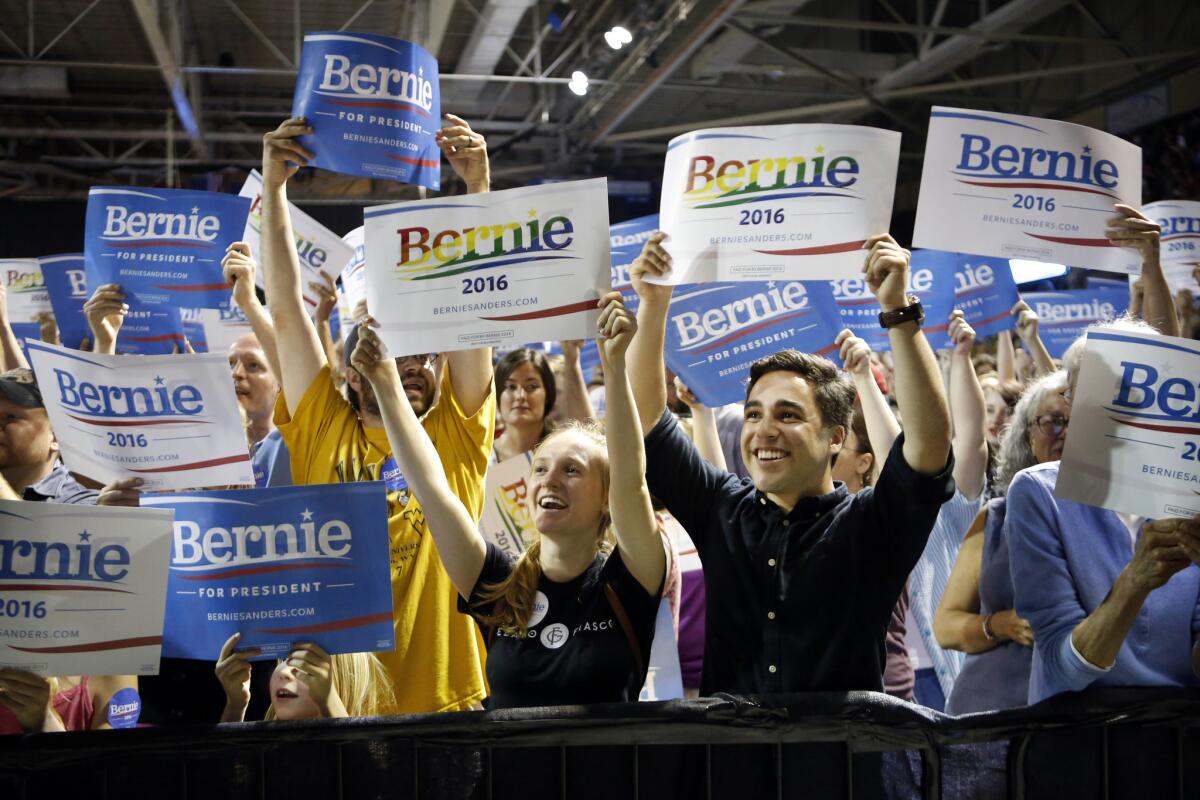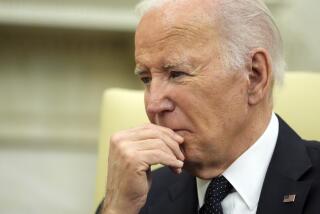Opinion: What the polls say -- and don’t say -- about Bernie Sanders’ chances

Supporters of Democratic presidential candidate Bernie Sanders cheer at a campaign rally in Portland, Maine.
- Share via
Reporting from Washington — In my Wednesday column, I wrote that Bernie Sanders is showing surprising strength in this early stage of the Democratic presidential race – but I concluded that he’s still a long shot for the nomination.
That judgment drew complaints from Sanders fans, who complained that I was being too dismissive of the Vermont senator’s chances. One reader stooped so low as to send me a copy of a column I wrote early in the 2008 presidential race. “One of the open secrets of political reporting is that the predictive value of opinion polls … is weak at this stage of the game,” I wrote then.
Touché.
Still, while the polls can’t tell you how the campaign will turn out, some of the data inside recent polls bolster the case that Sanders faces a steep hill as he challenges the front-runner, Hillary Rodham Clinton. Three examples:
The Unacceptability Index: There’s not much evidence at this point that many Democrats are seriously dissatisfied with Clinton. An NBC-Wall Street Journal poll last month found that only 8% of Democrats said they couldn’t see themselves voting for the former secretary of State. Sanders already has a higher “unacceptable” rating: 32% said they couldn’t see themselves voting for him.
The Electability Index: A CNN poll last month found that while 72% of Democrats think Clinton would have the best chance of any candidate to beat a Republican nominee, only 2% thought Sanders would be the strongest candidate. That’s a remarkable number for this reason: It means even most Sanders voters don’t think he’d be the party’s strongest nominee. You can expect Clinton and her surrogates to hammer at the “electability” argument in the months ahead.
The Biden Factor: Some national polls may actually understate Clinton’s support. In polls that include Vice President Joe Biden as an option, the VP draws support from about 13% of Democratic voters (against 63% for Clinton and 14% for Sanders, according to the RealClearPolitics website). If Biden doesn’t run, polls suggest that most of his backers would opt for Clinton as their second choice.
So, yes, Sanders is still a long shot. But as I wrote in 2007, these early polls can’t predict how the election will turn out.
At this point in the 2008 campaign, Hillary Clinton had a substantial lead over Barack Obama in the polls; Obama went on to win the nomination. At the same point, former New York Mayor Rudolph W. Giuliani had a strong lead in the race for the Republican nomination; once the voting started, he never came close.
The early horse-race polls didn’t matter. “There are too many events – not just primaries and caucuses, but debates and decisions and twists of fate – that will determine how this race comes out,” I wrote then – in words that remain true today.
Follow Doyle McManus on Twitter @doylemcmanus and at Google+.
More to Read
A cure for the common opinion
Get thought-provoking perspectives with our weekly newsletter.
You may occasionally receive promotional content from the Los Angeles Times.










